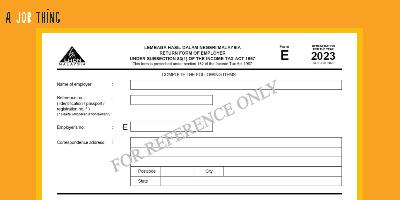
Are You a Leader? 8 Things You Must NEVER Ask Employees To Do
Create Job Description Using AI
Write appealing job descriptions for any job opening to attract the most qualifield and suitable candidates. FOR FREE.
try now
Sometimes, leaders and managers may not be aware that their request to employees are not professional and crossing ethical boundaries. There are no two ways about it, you must never ask your staff to:
-
Spy, investigate, or snitch on their co-workers and report back to you
You're in a company, not a spy movie! Be a professional. Such actions show a lack of trust, and that you are willing to compromise your employee's integrity for your own gains. What a terrible company culture you'd be creating. -
Lie to another employee or tell them something on your behalf
Asking an employee to be a middleman can breed a hotbed of miscommunication. If you have something to say, tell the person directly and honestly. As for lying, that's hardly professional! -
Force them to disclose personal problems in exchange for flexibility
If your employee is requesting for flexi hours due to family or personal issues, don't force them to tell you why. If you don't trust them, why hire them in the first place? Leave such disclosures to your human resources department if required. -
Tell you what other employees think about you
Not only does this put them in an awkward and uncomfortable position, you may very well be forcing them to lie to you. Use the proper and formal avenues of feedback and company evalutions. -
Evaluate other employees’ performance
You can ask for clarification or feedback about their colleague, but evaluation is your job, not your employees. -
Keep watch over other employees and report infractions or mistakes
This is similar to no.1, only you're making them do your job while turning them into snitches. -
Choose between a personal crisis and doing their job well
Doing this essentially puts them between a rock and a hard place, and your employee will resent you for it regardless of the answer they choose. Also, this will create a stressful business culture when employees expect they'll have to make such choices. -
Breach another employees’ confidentiality or privacy
Remember, its all about maintaining professionalism. Breaching anothers' privacy shows you don't respect their rights, and a clear breach of ethics.
As a business leader or manager, your actions reflect your company and creates its culture so think about if your behaviour is professional or is it pushing the limits of what's acceptable. Improve your actions, and you'll be a better leader for it! Comment if you think there are more to add to the above list.
Adapted from Liz Ryan, Forbes.




